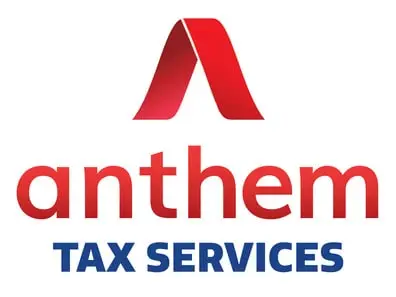
The Internal Revenue Service (IRS) is responsible for managing a wide range of tax-related functions and enforcement measures. As such, they have federal powers that allow them to enact a great degree of control over recuperative measures should they determine tax issues.
Unfortunately, it’s not always clear to the average person what the IRS can do in order to seek reimbursement for tax issues, or how they might manage your assets if prosecuting a case.
In this post, we hope to help you understand the capabilities of the IRS, why they might go about certain actions, and how to seek a suitable way through them:
Why would the IRS want to freeze my assets?
If the IRS is given the legal authority to seize your property or funds should you fail to pay your income tax, they can do so by freezing your assets.
They will first give you notice of this via a bank levy. This will inform you of their intention and right to seize your financial assets to reclaim the back taxes you might owe.
This may include:
- Personal property.
- Garnishing your wages. In some cases, this can be applied on top of a bank levy.
- Current funds and savings held in your bank accounts – including business and personal.
- Funds in retirement saving accounts or other special accounts.
Owe back taxes?
Our tax relief experts can help keep the IRS out of your life
Does the IRS give notice if they intend to seize my assets?
Yes, their process indicates that for most purposes, they will give you notice of their intent to freeze your assets (except for in rare cases where larger criminal fraud is identified and pursued).
There are two notices they will furnish you with:
- Notice of Demand for Payment.
- Final Notice of Intent to Levy and Notice of Your Right to a Hearing.
The final letter will give you 30 days to make your appeal or set up a potential repayment plan. It’s important to read through all of the terms and conditions of each letter and understand how they specifically correspond to your situation.
Is there any way to pause or stop the freezing of my assets?
Having your assets frozen is unlikely to be your idea of a good time.
Thankfully, there are recuperative measures you can put in place to stop this. Provided you’re within the 30-day notice period to appeal, you can request a CDP hearing or negotiate a payment plan as discussed above.
Let’s discuss both below:
- Repayment or payment plans.
Of course, the quickest and easiest option to settle with the IRS is to repay your overdue tax bill by setting up an installment agreement with the IRS. The former isn’t always an option depending on your means, and the latter may require some discussion, best aided by our tax relief specialist.
If you can provide financial hardship through this method, you may grant some temporary reprieve or a more affordable plan. Note that they may wish to go through your income and expenditures to make certain this repayment is adjusted to your capabilities.
- Requesting a CDP hearing within thirty days of your final notice.
The Collection Due Process (CDP) hearing request does not have to take place within 30 days of the final notice, only applied for. This can give you more breathing room to figure out your financial situation as a date for the hearing is arranged.
You will be assigned an appeals officer and can bring along a legal representative to act on your behalf. This will allow you to present your cases and offer any mitigating factors that may help suspend or alter the final outcome. You may be afforded an alternate solution if possible. If the IRS decision is upheld, you can make further appeals where necessary.
- Requesting a bank levy release.
If a bank levy goes into effect, that means your accounts are often frozen, set aside, and held for 21 days. This gives you an additional three weeks to settle with the IRS. If not, the funds in that account may be seized to repay your outstanding tax debt.
With a skilled tax professional, you may be able to request a bank levy release to prevent that from happening and to ensure your application within those 21 days is settled. This can help you suspend the seizure of your bank account assets.
Contact Anthem Tax Services for specialized tax debt relief
At Anthem Tax Services, we’ve helped thousands of clients manage negotiations with the IRS while helping to retain and protect their assets.
Contact our tax relief team at 888-548-0478 today to see what options are available to you.
The Internal Revenue Service (IRS) is responsible for managing a wide range of tax-related functions and enforcement measures. As such, they have federal powers that allow them to enact a great degree of control over recuperative measures should they determine tax issues.
Unfortunately, it’s not always clear to the average person what the IRS can do in order to seek reimbursement for tax issues, or how they might manage your assets if prosecuting a case.
In this post, we hope to help you understand the capabilities of the IRS, why they might go about certain actions, and how to seek a suitable way through them:
Why would the IRS want to freeze my assets?
If the IRS is given the legal authority to seize your property or funds should you fail to pay your income tax, they can do so by freezing your assets.
They will first give you notice of this via a bank levy. This will inform you of their intention and right to seize your financial assets to reclaim the back taxes you might owe.
This may include:
- Personal property.
- Garnishing your wages. In some cases, this can be applied on top of a bank levy.
- Current funds and savings held in your bank accounts – including business and personal.
- Funds in retirement saving accounts or other special accounts.
Does the IRS give notice if they intend to seize my assets?
Yes, their process indicates that for most purposes, they will give you notice of their intent to freeze your assets (except for in rare cases where larger criminal fraud is identified and pursued).
There are two notices they will furnish you with:
- Notice of Demand for Payment.
- Final Notice of Intent to Levy and Notice of Your Right to a Hearing.
The final letter will give you 30 days to make your appeal or set up a potential repayment plan. It’s important to read through all of the terms and conditions of each letter and understand how they specifically correspond to your situation.
Is there any way to pause or stop the freezing of my assets?
Having your assets frozen is unlikely to be your idea of a good time.
Thankfully, there are recuperative measures you can put in place to stop this. Provided you’re within the 30-day notice period to appeal, you can request a CDP hearing or negotiate a payment plan as discussed above.
Let’s discuss both below:
- Repayment or payment plans.
Of course, the quickest and easiest option to settle with the IRS is to repay your overdue tax bill by setting up an installment agreement with the IRS. The former isn’t always an option depending on your means, and the latter may require some discussion, best aided by our tax relief specialist.
If you can provide financial hardship through this method, you may grant some temporary reprieve or a more affordable plan. Note that they may wish to go through your income and expenditures to make certain this repayment is adjusted to your capabilities.
- Requesting a CDP hearing within thirty days of your final notice.
The Collection Due Process (CDP) hearing request does not have to take place within 30 days of the final notice, only applied for. This can give you more breathing room to figure out your financial situation as a date for the hearing is arranged.
You will be assigned an appeals officer and can bring along a legal representative to act on your behalf. This will allow you to present your cases and offer any mitigating factors that may help suspend or alter the final outcome. You may be afforded an alternate solution if possible. If the IRS decision is upheld, you can make further appeals where necessary.
- Requesting a bank levy release.
If a bank levy goes into effect, that means your accounts are often frozen, set aside, and held for 21 days. This gives you an additional three weeks to settle with the IRS. If not, the funds in that account may be seized to repay your outstanding tax debt.
With a skilled tax professional, you may be able to request a bank levy release to prevent that from happening and to ensure your application within those 21 days is settled. This can help you suspend the seizure of your bank account assets.
Contact Anthem Tax Services for specialized tax debt relief
At Anthem Tax Services, we’ve helped thousands of clients manage negotiations with the IRS while helping to retain and protect their assets.
Contact our tax relief team at 888-548-0478 today to see what options are available to you.


